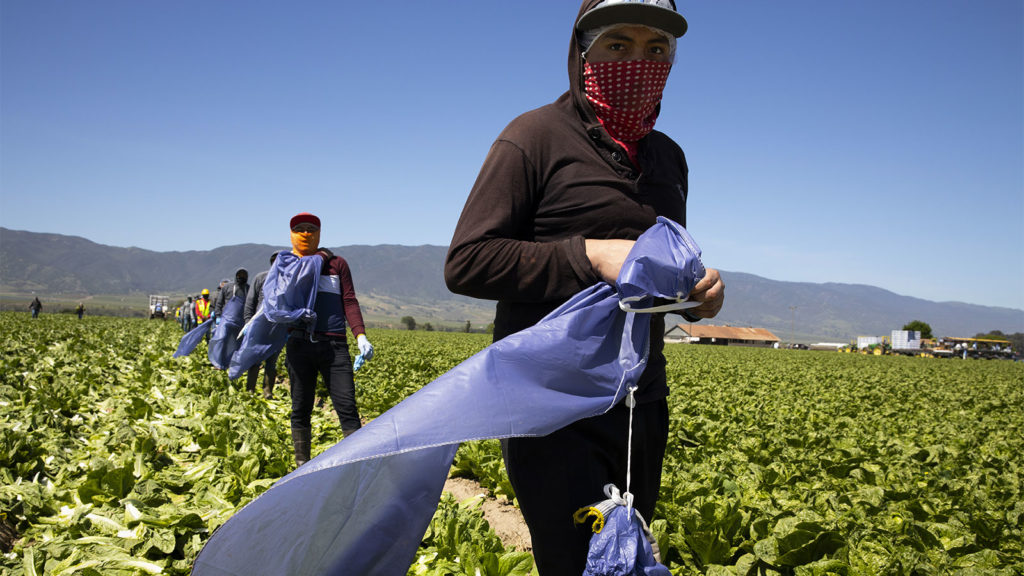Farmworker Deaths and Climate Change

Among the people most impacted by climate change are farmworkers. That a worker died in the recent Northwest heat wave is entirely expected.
Sebastian Francisco Perez, a Guatemalan immigrant to Marion County, was working hard and saving money to become a father.
He arrived in the U.S. on May 5 to work at Ernst Nursery and Farms in rural St. Paul so he could fund his wife’s fertility treatment in Guatemala, said Reyna Lopez, executive director of PCUN. He died less than two months later, on June 26, while working at the tree farm during the Pacific Northwest’s unprecedented heat wave.
Perez was one of 174,000 migrant and seasonal farmworkers in Oregon who have worked through heat, cold, wildfires and the pandemic this year to feed the country. Farmworker advocates said his preventable death should serve as a local and national call to action.
At three vigils Saturday in St. Paul, Portland and Hermiston, community members grieved and celebrated 38-year-old Perez’s memory and called for justice in his honor. Perez’s mother and wife joined the Portland vigil via video call from Ixcan, Guatemala. They thanked activists for their work and community members for their presence.
“We don’t want more of our family members to go through this,” said Perez’s wife, Maria Lucas Alonzo. “We don’t want more death… We don’t want more sadness.”
Perez didn’t just die. He was murdered by a system of farmworker exploitation, where we as a nation have never taken these issues seriously. Wages, housing, bathroom breaks, water accessibility, and basically all other working conditions are still terrible. Dozens of people sleeping in a large and unsanitary room, water being far away, no respite from the heat, all of this is entirely preventable. The farmers of course want nothing to do with it since these laborers are only on site part-time. Farmworker unions, such as PCUN in Oregon, have worked on these issues for decades now. But it’s hard move ahead in the fate of state indifference, very much including in blue states with blue legislatures and a blue governor like Oregon.
Organizations including PCUN, the Oregon’s farmworker union; the Latino Network, a nonprofit organization; Causa, an immigrant rights organization; and United Farm Workers, a national farmworker union, organized the vigils and demanded action from Oregon’s government.
Among their calls are that farmworkers be provided shaded break areas, cool and clean water, heat-illness prevention programming, protections against retaliation and an end to work when temperatures exceed 90 degrees.
Must be communists or something with demands like that.


